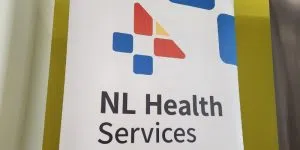The country’s privacy commissioners have issued a joint statement regarding contact tracing apps being considered by governments during the current health emergency.
The provincial government has already indicated it’s considering contact tracing apps to help identify those who come into contact with a person who tests positive for COVID-19.
Use of the apps would be voluntary and opt-in, but they still raise serious questions surrounding the protection of personal privacy.

Michael Harvey is this province’s privacy commissioner.
That’s prompted the country’s privacy commissioners, including Newfoundland and Labrador’s Michael Harvey, to release a joint set of provisions that they say should be carefully considered and followed in order to protect privacy and public health.
A full list of provisions can be found below, but they include minimal intrusiveness, limitations on the length of time and purpose of the apps, data collection that is encrypted and not linked to personal identification, transparency, and other built-in safeguards.
The provisions are as follows:
- Consent and trust: The use of apps must be voluntary. This will be indispensable to building public trust. Trust will also require that governments demonstrate a high level of transparency and accountability.
- Legal authority: The proposed measures must have a clear legal basis and consent must be meaningful. Separate consent must be provided for all specific public health purposes intended. Personal information should not be accessible or compellable by service providers or other organizations.
- Necessity and Proportionality: Measures must be necessary and proportionate and, therefore, be science-based, necessary for a specific purpose, tailored to that purpose and likely to be effective. To assist in determining whether the measure in question is justifiable in the circumstances, governments should consider the following:
- Necessity: the public health purpose or purposes underlying a measure must be evidence-based and defined with some specificity. Is the purpose to notify users and advise them to take certain actions? Is it to assist public health authorities to better understand local conditions for resource allocation purposes? Is it for another purpose?
- Proportionality: the measure should be carefully tailored in a way that is rationally connected to the specific purpose(s) to be achieved,
- Effectiveness: the measure must be likely to be effective at achieving the defined purpose(s), and,
- Minimal intrusiveness: while the least intrusive option for the intended purpose should be chosen, and data minimization should be applied, where that cannot be achieved or demonstrated, governments should clearly communicate the rationale for the level of personal information that they need to collect.
- Purpose Limitation: Personal information must be used for its intended public health purpose, and for no other purpose.
- De-identification: De-identified or aggregate data should be used whenever possible, unless it will not achieve the defined purpose. Consideration should be given to the risk of re-identification, which can be heightened in the case of location data.
- Time-Limitation: Exceptional measures should be time-limited: any personal information collected during this period should be destroyed when the crisis ends, and the application decommissioned.
- Transparency: Government should be clear about the basis and the terms applicable to exceptional measures. Canadians should be fully informed about the information to be collected, how it will be used, who will have access to it, where it will be stored, how it will be securely retained and when it will be destroyed. Privacy Impact Assessments (PIAs) or meaningful privacy analysis should be completed, reviewed by Privacy Commissioners, and a plain-language summary published proactively.
- Accountability: Governments should develop and make public an ongoing monitoring and evaluation plan concerning the effectiveness of these initiatives and commit to publicly posting the evaluation report within a specific timeline. Oversight by an independent third-party – such as review and implementation monitoring by a privacy commissioner’s office – will help ensure accountability and reinforce public trust. While some privacy commissioners have the legal authority to conduct independent audits, it is encouraged that others be given this mandate by government through appropriate means. If effectiveness of the application cannot be demonstrated, it should be decommissioned and any personal information collected should be destroyed.
- Safeguards: Appropriate legal and technical security safeguards, including strong contractual measures with developers, must be put in place to ensure that any non-authorized parties do not access data and not to be used for any purpose other than its intended public health purpose. Authorities must ensure the public are aware of associated risks and threats (e.g. online fraud or malware).
























